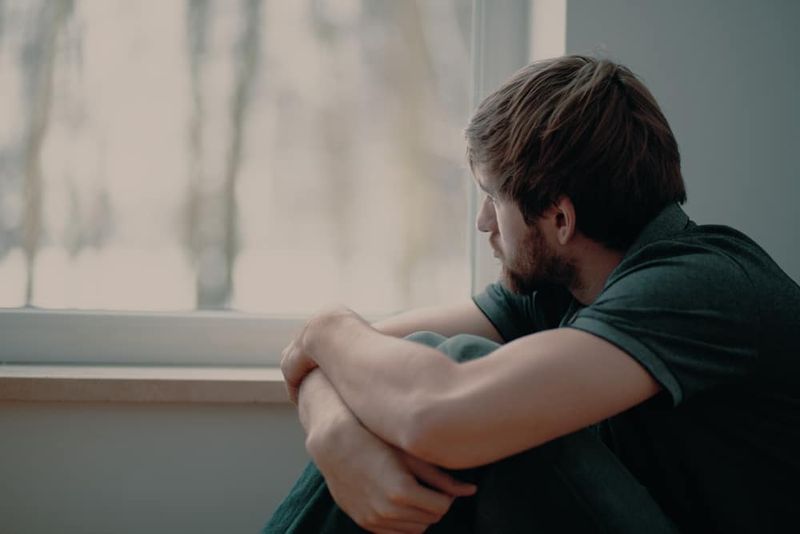15 Post-Divorce Realities That Stay the Same And 3 Avoidable Mistakes That Make Them Tougher
Life after divorce can be a labyrinth of emotions and realities that persist long after the papers are signed. While some aspects remain unchanged, others can be made more challenging by common mistakes.
Understanding these elements can provide a compass in navigating through the aftermath. Here’s a look at what stays the same and the pitfalls to sidestep.
1. Co-parenting is still hard

Even in amicable divorces, co-parenting can present significant challenges. Communication is key, but it’s not always easy to maintain harmony when emotions run high. Scheduling conflicts can arise, and differing parenting styles may create friction.
Despite intentions, past grievances can surface, complicating matters further. Children, often caught in the middle, may struggle to adapt to new routines. The focus should remain on their well-being, requiring patience and compromise.
Remember, it’s a long-term commitment to collaborate effectively for your child’s sake. The journey isn’t linear, and setbacks are part of the process. But with effort and empathy, you can find a rhythm that works.
2. There’s no clear timeline for healing

Healing from a divorce is not a race with a finish line. Each person’s journey is uniquely their own, with no set timeline. Emotions ebb and flow, and what feels overwhelming one day might fade into the background the next.
The lack of a predictable path can be frustrating, but acceptance is crucial. It’s okay to have good days and bad, to feel both progress and setbacks. Embrace this non-linear path as a part of the healing process.
Seeking support from friends, family, or professionals can provide comfort and perspective. Remember, healing is not a destination but a journey to self-discovery and growth.
3. Mutual friends don’t always stay neutral

Navigating friendships post-divorce can be a tricky affair. Mutual friends often find themselves in awkward positions, sometimes feeling compelled to choose sides, even unintentionally. This can lead to fractures in once-solid relationships.
It’s important to manage expectations and communicate openly with these friends. They may struggle with their loyalties, which can lead to misunderstandings or distancing. Patience and understanding can go a long way in preserving these connections.
Ultimately, friendships that withstand the pressures of divorce can emerge stronger, built on a foundation of mutual respect and honesty. It’s a delicate balance, but one worth striving for.
4. Holidays stay complicated

The magic of holidays can feel bittersweet post-divorce. Traditions may shift, and the absence of a partner can cast a shadow over celebrations. Complicated feelings are common, as holidays often amplify the sense of loss.
New traditions can help navigate these times, providing a sense of hope and renewal. Embrace the chance to create meaningful memories with children or friends, establishing new rituals that bring joy.
While the absence of old traditions may sting, focusing on the present moment can bring comfort. Remember, it’s okay to feel a mix of emotions during these special times, and seeking joy is a step forward.
5. Grief and relief come in waves

Divorce brings a unique mix of grief and relief, often experienced in waves. One moment, the sense of freedom is palpable; the next, the weight of loss feels insurmountable. This duality is a common post-divorce reality.
Accepting these oscillating emotions as part of the healing journey is vital. It’s okay to mourn the past while appreciating newfound independence. Each wave is an opportunity to understand oneself better.
Support networks can provide solace, offering a reminder that these feelings are normal. As time passes, the waves may become more manageable, reflecting the resilience built through the process.
6. The paperwork never fully ends

Divorce might legally sever ties, but the paperwork often persists. From financial settlements to custody agreements, the bureaucratic side of divorce is an ongoing reality.
These documents require meticulous attention, ensuring all obligations are met and rights protected. The continual administrative tasks can feel burdensome, overshadowing personal progress.
Staying organized and proactive can alleviate some of this stress. Professional assistance from lawyers or financial advisors may offer guidance, ensuring nothing slips through the cracks. While tedious, this process is crucial for ensuring a stable future.
7. Your emotional triggers still exist

Emotional triggers linger long after the final decree. A song, a location, or even a scent can transport one back to moments of joy or pain. These triggers can catch you off guard, reigniting feelings you thought were resolved.
Acknowledging these triggers is the first step toward managing them. Over time, their impact may lessen as you develop coping strategies and build new associations.
Self-awareness and mindfulness practices can aid in navigating these emotional landmines, transforming them into opportunities for growth and healing. Embrace them as part of your unique journey, not as setbacks.
8. You still hear their voice in your head sometimes

The voice of an ex-partner can linger, echoing in your thoughts long after separation. Whether it’s their opinions or shared jokes, these remnants can feel invasive.
Recognizing this as a natural part of the separation process is reassuring. Over time, these thoughts can transition from intrusive to part of your narrative, reflecting the shared experiences that shaped you.
Progress involves creating new mental space for your own voice to emerge. Practicing self-compassion and patience allows for this shift, fostering a sense of independence and self-acceptance.
9. You won’t always feel strong

Strength can be elusive in the aftermath of divorce. There will be days when vulnerability takes the forefront, and emotional resilience feels like a distant memory. This is a normal part of the healing process.
Accepting moments of weakness allows you to address them constructively. Leaning on support systems during these times can provide the encouragement needed to persevere.
Remember, strength is not the absence of struggle but the courage to face it. Each difficult day is a stepping stone toward building a new life, filled with both challenges and triumphs.
10. Your kids ask hard questions

Children’s inquisitive nature can lead to challenging conversations post-divorce. Their questions may touch on sensitive topics, reflecting their attempts to understand and process the changes.
Honest communication tailored to their age and emotional maturity is essential. It helps them navigate their feelings while reinforcing a sense of security and trust.
These interactions can be difficult, but they offer opportunities for growth and bonding. By addressing their concerns openly, you empower them to cope with the new family dynamic.
11. Dating can feel more like pressure than fun

Re-entering the dating scene after a divorce can feel daunting. The pressure to find a new partner or prove personal worth can overshadow the enjoyment of meeting new people.
It’s important to approach dating with an open mind, free from the constraints of comparison or expectation. Enjoying the process rather than rushing can lead to more genuine connections.
Remember, dating is not a race. Taking time to rebuild confidence and understand personal desires can transform it into a rewarding experience, rather than a stressful obligation.
12. Your financial reality may shift dramatically

Divorce often brings significant financial adjustments. The shift from dual to single income can be jarring, prompting a reassessment of budgeting and lifestyle. This new economic landscape requires careful navigation.
Developing a clear financial plan is crucial. It provides a sense of control and direction during turbulent times. Seeking advice from financial professionals can also offer insights and strategies to stabilize your situation.
While these changes are challenging, they also present opportunities for growth and independence. Embracing new financial habits can lead to a more secure and empowered future.
13. You miss the idea of them more than the person

Post-divorce, it’s common to yearn for the comfort and familiarity of past routines rather than the person themselves. Nostalgia can cloud the reality of the relationship, making it difficult to move forward.
Recognizing this can help in distinguishing between missing the person versus the idea of them. It’s a step towards healing and embracing the present.
Reflection and self-awareness are key to navigating these feelings. By focusing on personal growth and future aspirations, you create space for new, fulfilling experiences.
14. People treat you differently—sometimes awkwardly

After a divorce, social dynamics can shift, leading to unexpected changes in how people perceive and interact with you. Friends and acquaintances may not know how to approach or support you, leading to awkward encounters.
These interactions often stem from a lack of understanding or discomfort with the topic of divorce. By addressing these shifts openly, you can guide others in how to offer support and understanding.
Over time, these social adjustments can lead to strengthened relationships, built on a foundation of empathy and respect. Embrace these changes as part of your evolving social landscape.
15. Pretending you’re fine before you are

It’s tempting to mask pain with a brave face, pretending everything is fine post-divorce. However, this façade can hinder genuine healing and create additional stress.
Acknowledging your true emotions allows for authentic connections and support. It’s okay to lean on friends and family during tough times, fostering deeper relationships.
Authenticity is key to healing. By embracing vulnerability, you set the stage for genuine recovery and personal growth. Remember, it’s okay to not be okay, and asking for help is a sign of strength, not weakness.
16. Venting to people who don’t have your best interest

Sharing grievances with the wrong crowd can amplify negativity. Not everyone in your social circle may have your best interests at heart.
Choose confidants wisely, ensuring they offer constructive, supportive feedback. Venting should be a healing process, not one that fosters resentment.
By cultivating a supportive network, you create a safe space for expression and growth. Surround yourself with those who encourage your journey, offering empathy and understanding.
17. Holding onto bitterness to feel in control

Bitterness can feel like a protective shield, offering a false sense of control post-divorce. However, clinging to resentment can stifle personal growth and prolong emotional suffering.
Acknowledging these feelings is the first step toward releasing them. Forgiveness, both of oneself and the ex-partner, is a powerful tool for liberation.
By letting go of bitterness, you create space for healing and new opportunities. Embrace forgiveness as a pathway to reclaiming your life and finding peace.
18. Expecting your ex to give you closure

Closure is a personal journey, not something that can be granted by an ex-partner. Expecting external validation or apologies can delay healing and prevent moving forward.
Look inward for closure, recognizing that it is a process of self-acceptance and understanding. Seek meaning through personal reflection and growth.
Empower yourself by taking responsibility for your own emotional journey. This autonomy fosters resilience and the ability to embrace new beginnings without lingering expectations.







